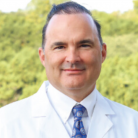The Best Time For Body Contouring After Major Weight Loss

Losing 100 pounds or more is a significant accomplishment! Yet after significant weight-loss there can be unwanted results, such as excess skin or stubborn remaining areas of fat. If you have undergone major weight loss and are left with saggy excess skin or pockets of diet and exercise resistant fat body contouring is an excellent option.
In this post we will discuss common issues people face after achieving their weight loss goals. Learn more about the best time for body contouring after major weight loss, how to prepare for your surgery, and how to maintain your results.
Body Contouring After Weight Loss
Substantial weight loss can leave behind excess skin in the belly, arms, thighs and buttocks. This is especially common in those who have been overweight for an extended period of time. Excess skin causes physical and emotional discomfort, and can interfere with the post-weight loss life you intended.
Body contouring plays a role in the weight loss journey by removing excess skin, and possibly also small, remaining areas of fat. Common body contouring procedures after weight loss include the following:
- Liposuction for the instant removal of isolated fat pockets occurring in the abdomen, arms, thighs or neck
- Tummy tuck surgery to remove and tighten excess abdominal skin and lax muscle
- Lift procedures to surgically remove or tighten excess saggy tissue of the breasts, buttocks, thighs, or arms
Body contouring reduces self-consciousness and the physical discomfort or pain of excess skin so patients can experience the full benefit of their weight loss. The timing of your body contour procedure(s) is critical, as the results are dependent upon your health and the stability of your weight.
The Best Time for Body Contouring After Weight Loss
We encourage prospective patients to consider the following three parameters before scheduling a body contouring procedure:
You’re at or near your weight loss goal
The ideal candidate for a body contouring procedure is at or near their final weight loss goal. This is because it is best to undergo body contouring at a weight that you are confident you can maintain over the long term. Gaining weight after your surgery can lead to asymmetrical body contours, while continuing to lose weight after surgery can lead to additional sagging skin. Waiting until you hit your target weight will ensure the best possible results without the need for additional “revision” procedures.
You Can Maintain Your Weight
Patients should also be confident in their ability to maintain their weight before scheduling a body contour procedure. A track record of consistent, healthy habits before your procedure, such as healthy eating and regular exercise, will increase the likelihood you’ll maintain these habits through recovery and beyond.
It’s important to keep in mind that liposuction is not a permanent weight loss fix. You’ll have to continue with daily exercise and clean, nutritious meals in order to maintain the results of body contouring results.
You’re Fully Recovered from Weight Loss Surgery
If your weight loss was the result of bariatric surgery like gastric bypass or lap band surgery, body contouring procedures should not be pursued until you are fully recovered from surgery, acclimated to your new diet, and at a stable weight. Be sure to discuss your plans for body contouring with your bariatric surgeon before undergoing surgery again.
Preparing for your Body Contouring Procedure
As with any major surgery, doing homework ahead of time helps inform your expectations and can improve your outcome. The following pre-surgery tips should be on your to-do list:
Select a Board Certified Plastic Surgeon
A board certified surgeon with experience in post-weight loss surgery will help you understand which procedures best meet your goals. Your doctor will advise you on the most appropriate timeline for your procedure(s), and can answer any questions you have. Choosing an experienced, board certified surgeon can also improve outcomes and minimize scarring.
Discuss Your Expectations with Your Cosmetic Surgeon
Typically, the goal of body contouring after weight loss is to remove excess skin. If your goal includes liposuction or fat removal, discuss your expectations with your surgeon. Remember, body contouring procedures have their limits, and liposuction is not a weight loss tool.
Establish a Post-Surgery Support System
Depending on your procedure(s), full recovery can take several months. It’s critical you have a support system in place to help with 24/7 at-home care, especially within the first 2 weeks. A reliable support network allows you to apply your energy to your rest and recovery, where it’s most needed during this time.
After Your Body Contouring Procedure
After surgery, it is vital to follow your doctor’s post-operative instructions closely in order to recover quickly and ensure the best possible result. You will likely be sent home with bandages or compression garments, instructions regarding wound care, and medications or instructions to prevent pain as you heal. Be patient as your body recovers, and get as much rest as possible.
Here are some great resources on recovering from body contouring procedures:
Liposuction recovery blog post
Continue to eat healthy whole foods. If you’ve timed your surgery well, you should no longer be dieting. Your focus should be on fueling your body with the nutrition it needs for a rapid recovery. As you recover, slowly return to your pre-surgery exercise routine. Maintaining a healthy, active lifestyle is the best way to guarantee lasting results.
Disclaimer: The contents of the Westlake Dermatology website, including text, graphics, and images, are for informational purposes only and are not intended to substitute for direct medical advice from your physician or other qualified professional.
